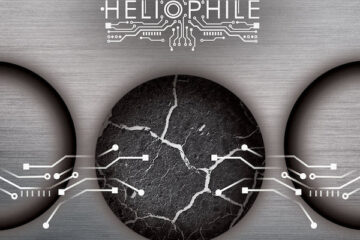Baltic Fleet’s third album sails along with a bolder wind at its back…
The inspiration for Baltic Fleet’s latest album is a suitably unusual one. Multi-instrumentalist and Baltic Fleet founder Paul Fleming had been intrigued by a local church – and in particular the story of the man who had built it in the 19th Century. It was part of an extensive series of building works which had been inspired by his wife, whom he called ‘the dear one’. Told through the pages of his diary, it later transpires that his wife had succumbed to illness and passed away shortly after.
Transposing much of the names and places featured in this diary into the record that became The Dear One, Fleming has managed to perhaps craft Baltic Fleet’s finest moment to date.
Baltic Fleet had already been riding high since winning the 2013 GIT Award (which was designed to celebrate musical talent from the Merseyside area). But Fleming has also turned his considerable talents to score films and had also been part of Echo And The Bunnymen, providing keyboards for both live performances and studio albums.
At its heart, Baltic Fleet is a largely instrumental project which nonetheless manages to craft an evocative and engaging music soundscape. Originally, Fleming merely composed by laptop and added on instrumentation where he could find it. The Dear One utilises the strengths of guitar, bass and drums on the album, which yet manages to retain a distinctly electronic sound.
There’s a bigger, bolder feel to The Dear One, with a cinematic quality to much of its compositions. At the same time, the electronic elements of the record retain a warmth that’s evocative of Merseyside’s classic synth-pop outfit Orchestral Manoeuvres In The Dark. Certainly, Fleming has a similar thoughtful, intelligent approach to melody and rhythm.
There’s an otherworldly quality to the opening track, the curiously titled ‘Sheriff Full Of Blessings Part 1’ whose fractured, spacey beats finally unleash a curiously complex series of elements consisting of evocative melodies and engaging rhythms.
‘Tuns’ combines a raw bass synth sound with some fine percussive elements. Meanwhile, there’s an oddly sinister element to the broody melodies of ‘Royving’.
BUY NOW
AMAZON
The album’s finest moment however is the title track. ‘The Dear One’ just breathes compelling synth melodies atop crunchy rhythm beds. There’s an ethereal quality to the whole affair that will stay in your head for days.
Perhaps one of the strengths of Baltic Fleet’s mission is in Fleming’s willingness to use a combination of instrumentation to achieve his sound. It’s perhaps a rare quality in a period in which a bizarre form of music fundamentalism has taken over elements of the UK electronic music scene (guitars are seen as the enemy in some camps, apparently).
Recruiting members of his live band during the recording of the album has given Fleming a much broader canvas to work on here. Certainly Simon Finley does an amazing job with some muscular drumming. Often the motorik beats and melodic flourishes suggest nods to the likes of Krautrock icons such as Neu! So it’s not surprising to learn that Fleming counts the likes of Neu! as influences alongside Eno, Sigur Ros and Low-period Bowie.
There’s certainly an aural kinship with acts such as Public Service Broadcasting in the way that Baltic Fleet adopt a combination of beats and instrumentals. But Baltic Fleet appear to have a much tighter and engaging approach here. There’s a peculiarly dense quality to Baltic Fleet’s deeply layered compositions, which appears to render everything on a larger than life scale. At the same time, there’s always a human quality that keeps the music grounded.
The result is perhaps one of the best albums of the year – and a particularly refreshing accomplishment in the world of electronic music, which has served up so many disappointing retro acts in recent years.
http://www.balticfleetmusic.com
http://www.blowuprecords.com
Facebook: https://www.facebook.com/BalticFleet
Twitter: https://twitter.com/BalticFleetUK
This article originally appeared on the Wavegirl site.










